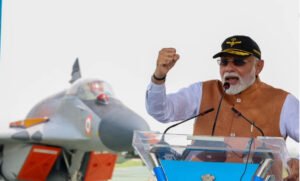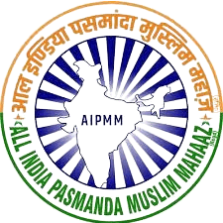 The Indian subcontinent today stands at a historic juncture, where Pakistan’s long-standing policy of state-sponsored terrorism is being challenged by a determined and decisive India – an India that has abandoned the old legacy of strategic restraint.
The Indian subcontinent today stands at a historic juncture, where Pakistan’s long-standing policy of state-sponsored terrorism is being challenged by a determined and decisive India – an India that has abandoned the old legacy of strategic restraint.
For decades, Pakistan nurtured a terrorist network under the cover of nuclear weapons and deceptive diplomatic manoeuvres. That era of appeasement is over.
Under the strong leadership of Prime Minister Narendra Modi and the strategic vision of National Security Advisor Ajit Doval, India has launched a campaign to dismantle Pakistan’s terror infrastructure with precision and purpose.
Pakistan has pursued a staunch anti-India agenda since its formation, and after suffering defeats in conventional wars, it began using terrorism as a strategic weapon. The Inter-Services Intelligence (ISI) has developed dozens of jihadist organisations, such as Lashkar-e-Taiba (LeT), Jaish-e-Mohammed (JeM), and Hizbul Mujahideen, as instruments of state policy.
According to credible intelligence inputs, more than 40 active terror training camps in Pakistan Occupied Kashmir (POK) and other provinces of Pakistan serve as launchpads for attacks on India.
The history of these terrorist organisations is stained with blood: the 2001 Parliament attack, the 2008 Mumbai attack, and the 2019 Pulwama suicide attack were all well-planned actions under the patronage of Pakistan. These were not isolated incidents but strategic moves as part of asymmetric warfare.
Pakistan’s role is not limited to logistical support, it is also deeply involved in terrorism financing. Despite the FATF (Financial Action Task Force) assessment report of September 2024, Pakistan remains a hub of illegal financial transactions.
Despite a $7 billion bailout package from the IMF in July 2024, Pakistan is misusing resources to keep its terror network alive, while the country is struggling with 25% inflation and an external debt of $130 billion.
For years, India’s response to terrorism was driven by strategic restraint — diplomatic protests and limited military deployments were met with a lack of concrete retaliation. There was no strong action against Pakistan despite international outrage after Operation Parakram in 2001 and the 2008 Mumbai attacks.
 Pakistan took India’s restraint for weakness. This illusion ended after 2014, when a new strategic thinking emerged in New Delhi – now based on deterrence, retribution, and clear political will.
Pakistan took India’s restraint for weakness. This illusion ended after 2014, when a new strategic thinking emerged in New Delhi – now based on deterrence, retribution, and clear political will.
After Prime Minister Narendra Modi came to power, India’s counter-terrorism strategy underwent a radical change. The major achievements of this new policy are: 2016 Surgical Strike: In response to the Uri attack, Indian special forces crossed the LoC and destroyed several terrorist launchpads.
2019 Balakot Airstrike: After the Pulwama attack, the Indian Air Force attacked the Jaish-e-Mohammed training camp in Khyber Pakhtunkhwa, Pakistan.
Operation Sindoor (May 2025): In response to the Pahalgam terror attack on 22 April 2025 (in which 26 civilians were killed), India launched a coordinated missile attack on nine terrorist bases in Pakistan’s Punjab and PoK.
In this operation of just 25 minutes, more than 80 terrorists of Lashkar, Jaish and Hizbul were killed. Pakistan’s retaliatory drone and missile actions were successfully thwarted by India’s air defence system – a Pakistani F-16 was also shot down and a key air defence unit in Lahore was destroyed.
India’s counter-terrorism capabilities are now further strengthened by advancements in indigenous defence technologies:
Tapas-BH Drone: Unprecedented enhancement in border surveillance and reconnaissance capability.
NETRA AEW&C System: Early warning system against aerial threats.
AI-based surveillance network: Deployed along the LoC from 2024, enabling accurate target identification and timely action.
India’s counterterrorism policy is not just limited to the military — a parallel diplomatic front has also been successfully operated. By abrogating Article 370 in 2019, India neutralised Pakistan’s Kashmir narrative. The G20’s unanimous counterterrorism resolution in 2025 was a major diplomatic win for India.
On the economic front, India withdrew the MFN (Most Favoured Nation) status granted to Pakistan and suspended bilateral trade, further increasing Pakistan’s dependence on Chinese loans and Gulf remittances.
National Security Advisor Ajit Doval has been the key architect of this entire strategic shift. His doctrine is based on three key pillars:
Shariq Adeeb Ansari
working president
all india pasmanda muslim mahaaz

